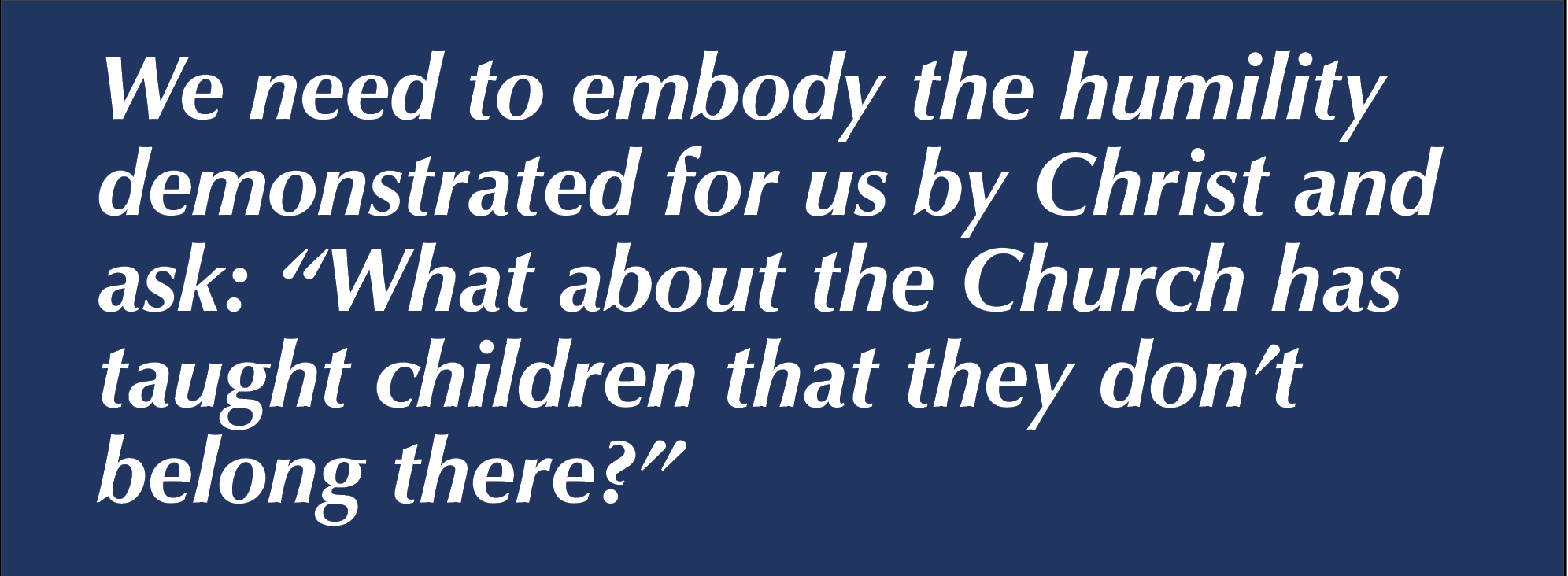Why aren’t the young people coming to church anymore?
I hear this question so often from faithful Anglicans. It’s a valid one that I believe we should be wrestling with. But so often in these conversations, we end up blaming everybody but ourselves. We think that when they started opening the stores and scheduling hockey practices on Sundays, it lured children away from the Church. We think that when they stopped saying the Lord’s Prayer in school, it gave children the impression that religion didn’t matter anymore. Are families confronted with competing worldviews and activities now that they weren’t before? Absolutely. Do I think they are responsible for the decline of youth in our Church? I do not, because none of these “reasons” has done the hard work of self-reflection. The life of Jesus teaches us that when we see a problem, the first thing we need to do is look at ourselves. We need to embody the humility demonstrated for us by Christ and ask: “What about the Church has taught children that they don’t belong there?”
As a priest whose age puts her somewhere in between the young and the old, I have some thoughts on this question. On an institutional level, I believe the intergenerational spiritual harm caused by the Church to various marginalized groups has a lot to do with young people’s disillusionment with the Church. As an institution, however, we have started to repent for these detrimental mistakes. So what is it, despite our attempts at reconciliation, that keeps children and families away? This continued absence, I believe, is due to the contradictory messaging given by the majority of our churches.
Here is a short, non-exhaustive list of examples of this messaging:
- We tell young people they are welcome in our churches, but when they show up we do not make an effort to know them
- We tell young people we want them to be themselves, but then we try to fit them into what we do instead of letting them express themselves in ways that are honest to them.
- We ask young people to conform instead of letting them belong
- We express great desire for young people to become part of our Church families, but then when they come through the doors we separate them from us
- We expect young people to meet our need for a younger demographic, but we do not ask about or meet any of their need
- We want young people to come to us, but we are unwilling to go to them
- We declare young people have a lot to teach us, but we don’t give them opportunities use their voices
- We tell young people we love them for who they are, but then we see them only as symbols (of hope, degeneracy, change)
- We have high expectations for how young people should behave, but we do not demonstrate mature, responsible behaviour in return
I hope you felt uncomfortable reading some of these observations. They should be confronting. They should make us question what we truly value in our faith communities. These observations aren’t just true now. They were true long before the children disappeared. If we want to see youth in our churches we need to do the work. If it didn’t require work, if it didn’t require change, then our pews would be full of young people already. We need to be intentional about our desire to see young people in our churches again.
Not least because Anglican youth do, in fact, exist. They are alive and well. In June I went to General Synod where there was a large youth delegation from across the country. These youth didn’t just attend Synod; they played a major part. They were instrumental in the election of the primate. They brought forth several motions regarding youth involvement in the National Church. They were engaged in discussions on all topics. And they brought joy to worship and prayer. I was impressed and proud to be amongst them as they left their mark on the Anglican Church of Canada.
Just because there are no youth in your own church doesn’t mean there are no youth in the Church as a whole. Youth across this country, including right here in Newfoundland and Labrador, are doing amazing things. They care about the future of the Church because it is their Church too. They are committed to the life of Jesus. Their faith is alive and vibrant and active in exactly the way Jesus asks it to be. As one young person said at General Synod, youth are not the future of the Church, they are the present. They are here right now loving God just like you and me. We would do well to start acting like it.


